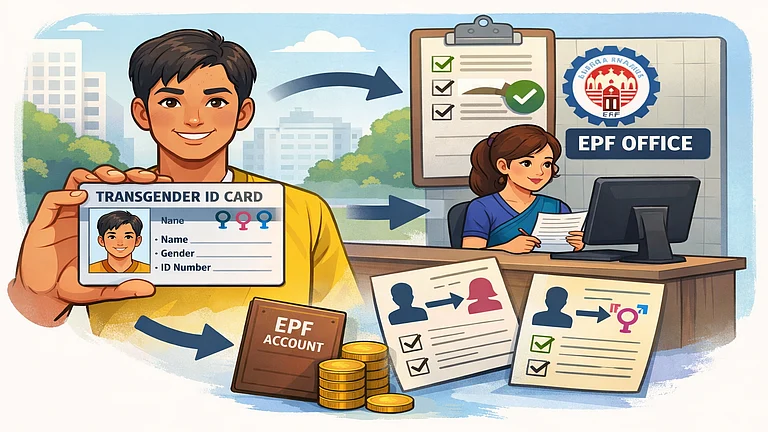
Summary of this article
EPFO's new mandate aims to make the process of UAN generation more streamlined and to strengthen identity verification. But the association argues that implementing it in one go, without alternatives, overlooks the practical realities many businesses face in day-to-day compliance.
The Association of Industries and Institutions has asked the labour ministry to revisit the Employees’ Provident Fund Organisation’s (EPFO) recent decision to make Aadhaar-based facial authentication, through the UMANG app, the only way to generate a universal account number (UAN).
The New Delhi-based body, which represents over 7,000 members across public and private enterprises, SMEs, and multinational companies, says this move could cause serious operational snags for employers.
In a letter to Labour and Employment Minister Mansukh Mandaviya, reviewed by the Mint, the group pointed to EPFO’s July 30 circular that makes UAN allotment and activation possible only via the UMANG app from August 1. The association said that in sectors with high employee churn, limited smartphone penetration, and low digital literacy, such a change would be particularly disruptive.
What is the UMANG application?
UMANG, short for Unified Mobile Application for New-age Governance, is the government’s one-stop mobile platform for a range of central, state, and select private services.
The retirement fund body’s new mandate aims to make the process more streamlined and to strengthen identity verification. But the association argues that implementing it in one go, without alternatives, overlooks the practical realities many businesses face in day-to-day compliance.
What are the recommendations?
The letter urged the ministry to allow the UMANG app and the Unified Employer Portal to operate in parallel for UAN generation, giving employers flexibility to use whichever channel is more workable in their circumstances. It also suggested that Aadhaar-based facial authentication should be made an optional, self-service feature for employees with the required digital access, rather than a compulsory step for all.
Another key recommendation was to permit bulk UAN generation through Aadhaar-based e-KYC by employers, with the facial authentication step deferred to a later stage. According to the association, this would help avoid unnecessary delays, especially for large employers who onboard multiple workers at once.
To make the shift smoother, the group has proposed a six-to-twelve-month grace period before full enforcement of this mandate. The time will allow employers for awareness campaigns, technical preparation, and workforce training. Without such a window, it warned, employers could face compliance logjams and potential penalties through no fault of their own.
While the association made it clear that it supports EPFO’s broader push for efficiency and transparency, it said policy execution must be “inclusive, pragmatic, and sensitive to the realities of India’s diverse workforce.”
Digital systems, it stressed, cannot be effective unless they are accessible to all stakeholders, including those in smaller towns and in industries where employees may not own smartphones or have the skills to navigate app-based authentication.
The industry body has appealed to the ministry to either withdraw the July 30 circular or defer its implementation until these concerns are addressed.


















